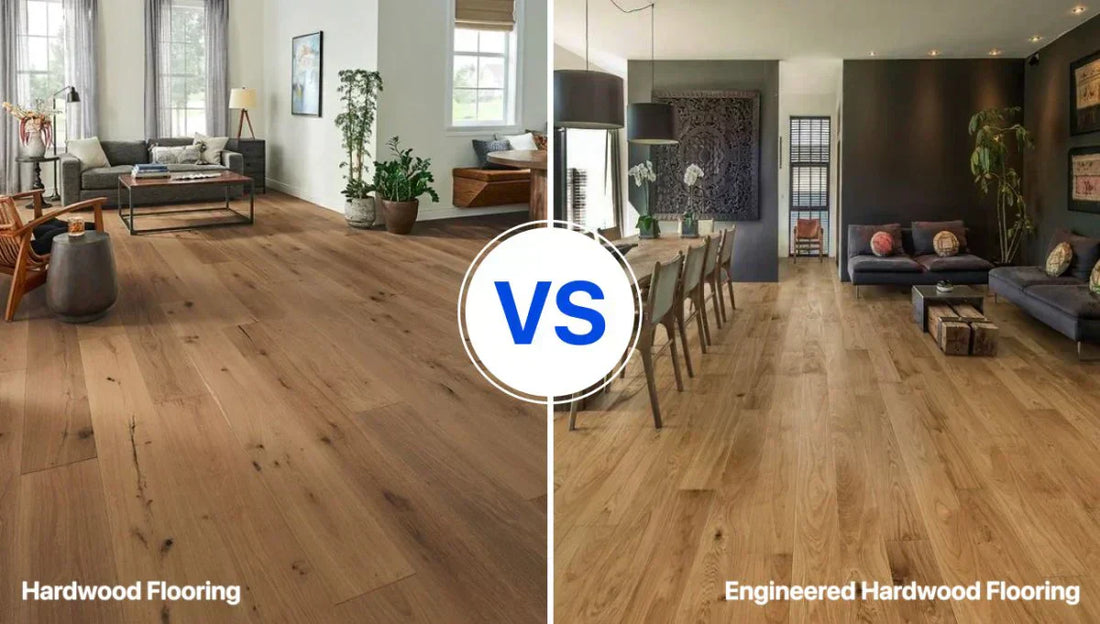
Solid Hardwood vs Engineered Hardwood
When choosing between engineered hardwood and solid hardwood flooring, it's important to understand their key differences to make an informed decision.
1. Composition and Structure:
- Solid Hardwood: Crafted from a single piece of wood, solid hardwood typically comes in thicknesses of 3/4" inch. This uniform composition allows for multiple refinishing over its lifespan.
- Engineered Hardwood: Constructed with a top veneer of genuine hardwood bonded over layers of high-quality plywood or high-density fiberboard (HDF), engineered hardwood offers enhanced stability. This multi-layered structure come in 6 1/2" and 7 1/2"inch makes it more resistant to moisture and temperature fluctuations
2. Appearance & Styles
- Solid Hardwood: Offers deeper grain patterns and can be sanded and refinished multiple times.
- Engineered Hardwood: Looks similar to solid wood but may have thinner wear layers, no refinishing options.
3. Durability & Stability
- Solid Hardwood: More susceptible to expansion/contraction due to temperature and humidity changes.
- Engineered Hardwood: More stable due to its multi-layer construction, making it better for moisture-prone areas.
4. Installation Methods
- Solid Hardwood: Typically nailed or stapled to a wooden subfloor; requires professional installation.
- Engineered Hardwood: Can be nailed, glued, or floated, allowing for easier DIY installation and use over concrete or radiant heating systems.
5. Moisture & Environmental Resistance
- Solid Hardwood: Not recommended for basements or bathrooms due to moisture sensitivity.
- Engineered Hardwood: More resistant to humidity, making it a better choice for basements and kitchens.
6. Lifespan & Refinishing
- Solid Hardwood: Can last 50+ years with proper care and refinishing.
- Engineered Hardwood: Lifespan varies (20-40 years), depending on the thickness of the top layer and whether it can be refinished.
7. Cost
- Solid Hardwood: Generally more expensive due to the high-quality wood and labor-intensive installation.
- Engineered Hardwood: Usually more affordable, though high-end options can rival solid wood prices.
Best For:
- Solid Hardwood: Traditional, high-end homes, long-term durability, and areas without humidity concerns.
- Engineered Hardwood: Homes with fluctuating humidity, basements, DIY installations, or budget-conscious projects.
